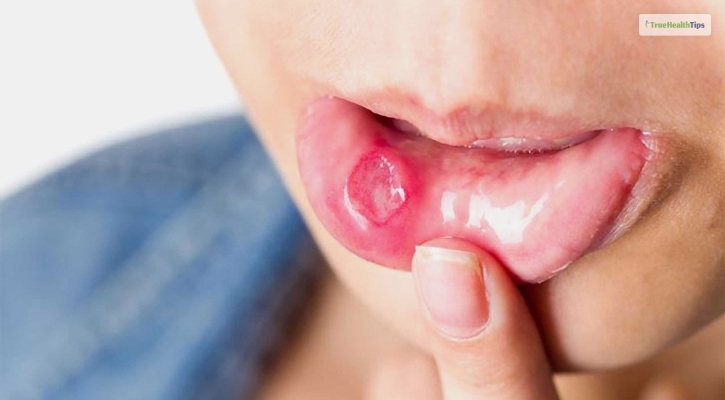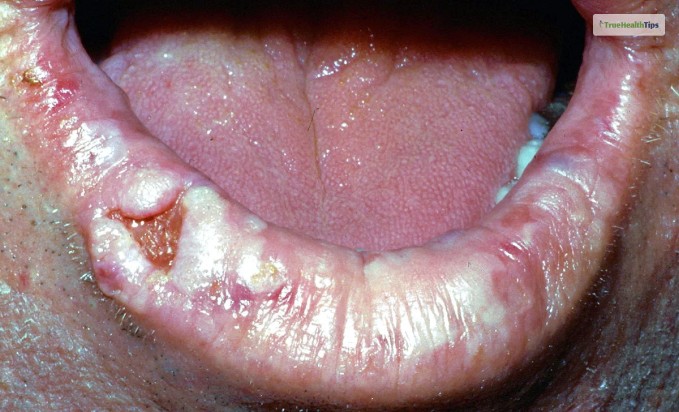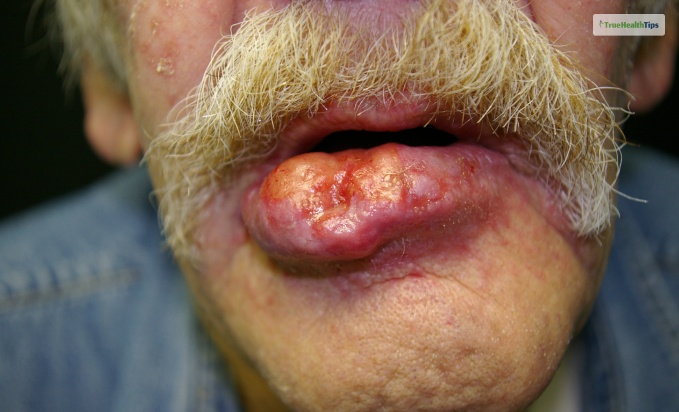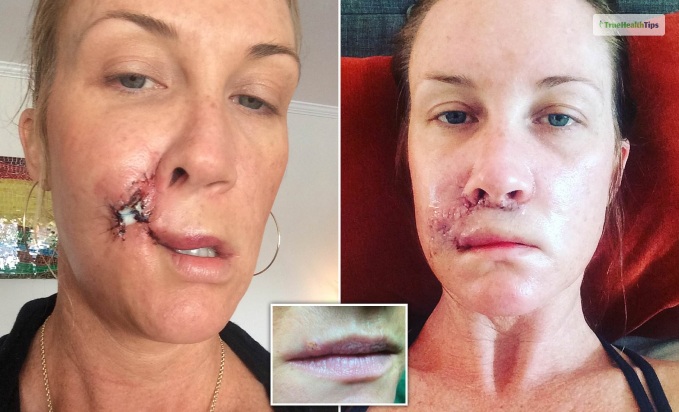
If you have been searching for information on lip cancer, you have reached the right place.
There are a number of diseases that people struggle with on a daily basis. And Cancer happens to be one of the most increasing causes of death. There are a number of different types of cancer. It can happen to any part of the body. And depending on the site of the cancerous growth of cells, the types and the name changes.
In case you have been searching for information related to lip cancer, you will find this article to be of help. Keep reading this blog till the end to learn more about the same…
Lip Cancer

Lip cancer develops from abnormal cells that grow out of control and form lesions or tumors on the lips. Lip cancer is a type of oral cancer.
This type of cancer develops in the squamous cells which line certain parts of the oral and facial structures. These are the cheeks, lips, throat, and tongue. In most cases, this type of cancer has a very high survival rate. This is because the condition is generally diagnosed in its early stages.
According to studies, “lip cancer occurs when abnormal cells grow out of control, resulting in tumors or lesions on the lips. A type of squamous cell carcinoma, lip cancer can develop on either the upper or lower lip, but it’s more common on the lower lip.”
Causes

In case you have been searching for the causes of lip cancer, you have reached the right place. There are many reasons for the cause of lip cancer.
The factors that can increase the risk of getting lip cancer include:
- Use of tobacco of any kind, like cigarettes, pipes, cigars, chewing tobacco or even snuff
- Having a fair skin
- Exposure of your lips to sun exposure on an extreme level
- A weak immune system
According to the National Institute of Dental and Craniofacial Research Trusted Source, many cases of oral cancer are linked to tobacco use and heavy alcohol use.
“Sun exposure is also a major risk factor, especially for people who work outdoors. This is because they’re more likely to have prolonged sun exposure,” statues Healthline.
An article published in the Cleveland Clinic mentions that this type of cancer can affect anyone. However, it is most common in men who have a lighter skin complexion and are over 50 years of age.
“People who use tobacco, drink excessive amounts of alcohol or have prolonged sun exposure are more likely to develop the condition. Also, people who are immunocompromised due to having an organ transplant can be at increased risk.”
This type of cancer starts when the cells develop changes or a mutation takes place in their DNA. A cell’s DNA contains the instructions that tell the cell what to do. When there is a change or mutation in the cells’ DNA, it starts to multiply abnormally, harming the surrounding cells and tissues that are healthy.
Here are some of the causes of lip cancer:
- Genetic mutations
- Hereditary
- Tobacco
- Alcohol
- Sun exposure.
Symptoms

Lip cancer mostly looks like a simple and harmless mouth sore which does not heal. In people with lighter skin tone and complexion, this might also appear reddish. On the other hand, in people with darker skin color, this sore may appear in a darker brown or gray color.
If you are searching for the symptoms of the disease, you have come to the right place. Here are some of the signs and symptoms of lip cancer that you need to know about:
- A sore or lesion or blister.
- An ulcer or lump in or around your mouth.
- Solemn form of bleeding or pain on your lips.
- a red or white patch on the lip.
- A swelling of or in the jaw.
Treatment

When it comes to the treatment of lip cancer, the process is lengthy, however it is similar to treating any form of cancer.
It starts with the diagnosis and understanding what stage the cancer is at and how far has it progressed.
“If the tumor is small, surgery is typically performed to remove it. This involves removal of all tissue involved with the cancer, plus reconstruction of the lip (cosmetically and functionally),” according to Healthline.
On the other hand, if the tumor is at a later stage or is much larger, the only way to treat this form of cancer is radiation treatment and chemotherapy. With the help of these treatments, it may be possible to shrink the lip tumor in size before the surgery is done.
These treatments are also often done after surgery for reducing the risk of it recurring. According to studies, “chemotherapy treatments deliver drugs throughout the body and reduce the risk of the cancer spreading or returning.”
Prevention
We all know that prevention is always better than cure. Thus, if you have been searching for ways to prevent lip cancer, you have come to the right place.
Here are some of the things that you need to do to reduce the risk of lip cancer:
- Tobacco is considered to be one of the main reasons that is related to the cause of lip cancer. If you use tobacco, it is best that you stop immediately. If you are not someone who takes tobacco, it is best that you do not start. Using tobacco, whether by chewing or smoking, exposes the cells of your lips to dangerous chemicals that cause cancer.
- It is best to avoid the sun rays during the middle of the day. The rays of the sun are known to damage the cells because they are ultraviolet in nature.
- It is best to apply sunscreen of a broad-spectrum with a minimum of 30 SPF, even on the days that are cloudy.
- It is also best to avoid tanning. Tanning beds are known to emit harmful ultraviolet rays. These can increase the risk of lip cancer.
Wrapping It Up!
In case you were searching for the information on lip cancer, I hope that this article has been of help to you. If there are any other queries related to the same, please do not hesitate to let me.All you need to do is scroll down till you reach the bottom of the page and leave your thoughts and queries at the comment box. And I will be there to answer them all for you. And do not forget to suggest what other diseases you want to learn about next.
Read More:











